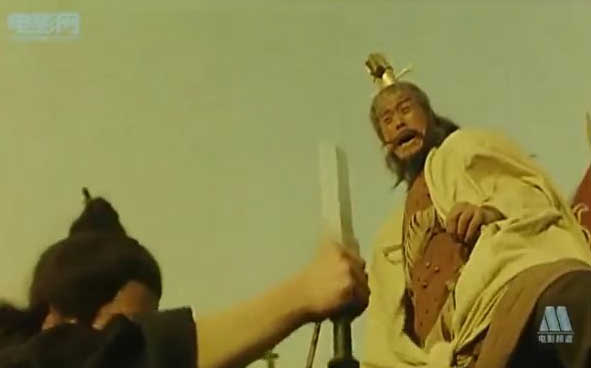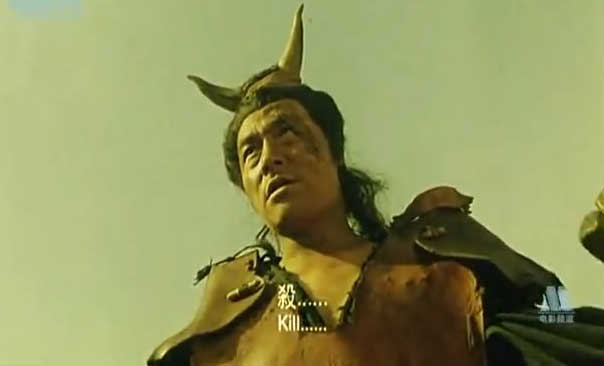
This Tsui Hark co-executive produced – along
with Cai Yubin – work was shown at the Hong Kong Film Archive as part of
its “The Celluloid Swordsman: Tsui Hark and His Cinema”’s special program.
Those of you who had never previously heard of the existence of this 1995
film are far from alone. One major reason for this being so stems from
its being a collaborative effort with the Beijing Film Studio that:
For some reason, it had been shelved for some years now; and only had its
Hong Kong – and probably outside of Mainland China – premiere on August 4th,
2001. The possibility is also very high that no home video versions
exist of the often downright eye-popping and mind-boggling movie; an unfortunate
state of affairs indeed in light of it being one that deserves to be viewed
by many, IMHO.

FORGING THE SWORD has as its setting an “ancient
China of 3,000 years ago” that was “a desolate mythical realm which tread
on the verge from primitive culture to early civilization, where totems
were objects of idolatry and [a] sorceress offered human sacrifices” (according
to a synopsis provided by the Hong Kong Film Archive). Its scar-faced
and otherwise broken looking hero is a former military commander who, at
his king’s command, supervised the forging of a great sword for his ruler
and also the massacre of the sword makers and their families (so that no
better sword would ever get made by the wretched craftsmen). As it
turned out, the master sword maker’s wife had nursed doubts about the character
of the man who had come to rule over their land, and had asked her husband
to secretly make a second, female gendered, sword – that was the equal, if
not the superior of the one that got hand-delivered to the palace – for their
only child.
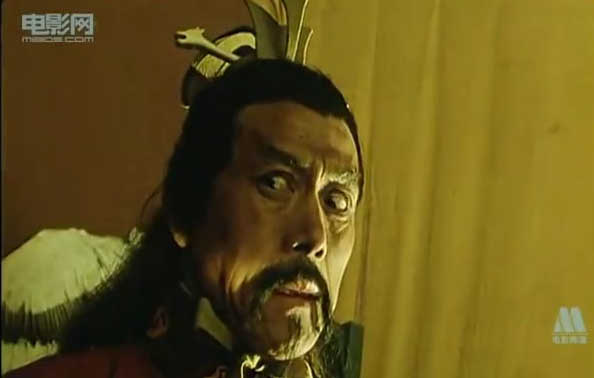
Upon his reaching his sixteenth birthday, the
child’s mother sent him to take revenge on the king on behalf of his father
(and the many murdered others). Unbeknownst to them, another now adult
child was also plotting to kill the brutal realm’s unpopular monarch so as
to avenge her murdered pater. Into their paths crossed a man – someone
who had figured in their past of at least one of them -- who was similarly
hell bent on saving the kingdom by ridding it of its increasingly eccentric
and highly superstitious ruler. Before FORGING THE SWORD reached its
thoroughly original climax and conclusion, the blood of humans as well as
many other species of humans – suffice to say at this juncture that this is
absolutely NOT the offering to show to animal lovers and all manner of squeamish
and/or faint hearted folk! -- would flow like water does in other films…
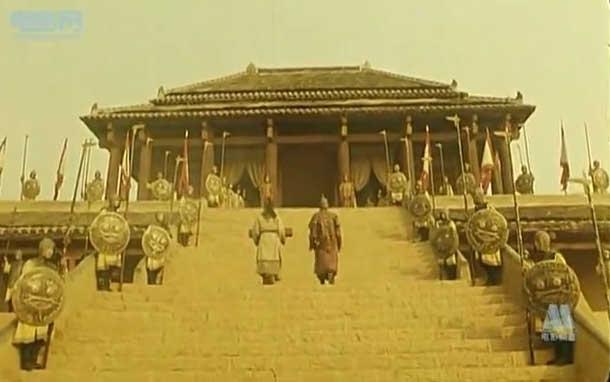
FORGING THE SWORD is directed by Zhang Huaxuan
(someone who appears to have zero web mentions) and has a script – based
on a story by the famous Lu Xun – that was written by Zhang Yang (the director
of “Shower” and “Spicy Love Soup”, who also happens to be the son of this
movie’s helmer). Since I am unfamiliar with these Mainland Chinese
individuals’ other work, I cannot tell whether this audacious effort possesses
stylistic characteristics and elemental attributes that are particularly
associated with them. Alternatively, the imprint of Mr. Tsui can be
readily discerned by this Hong Kong film fan on that which could be rather
accurately described as being a cross between “The Blade” and “Quest for
Fire” (Conversely, re-watching “The Blade” after viewing this very bloody
and feral offering, I got to thinking that Tsui Hark’s 1995 directorial effort
stands somewhere in between Wong Kar Wai’s hypnotic “Ashes of Time” and this
dark visioned presentation).
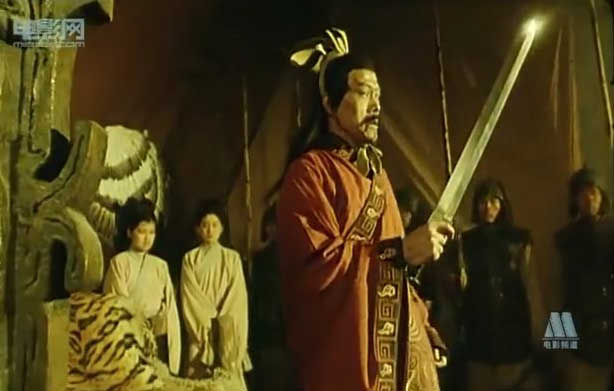
Although FORGING THE SWORD throws its viewers
into a very exotic looking world (and one that is initially silent bar for
the hammering and scraping sounds made by sweat and dirt encrusted men slaving
away in an underground or enclosed cave type environment), certain commonalities
come to mind between certain of its components and other Tsui Hark movies.
In addition to the obvious affinities that the film shares with “The Blade”
(not least those impressive scenes of blade making and people who are far
more rough and brutish than one would find in other East Asian films where
society is chaotically ruled by ruthless wielders of power and swords), there
are the sudden tonal changes that mark many a Film Workshop production.
The importance attached to the existence of twin swords in this movie is one
that has parallels in “Zu: Warriors from the Magic Mountain” and “The
Legend of Zu”. One unusual song (that has its performer howling like
a wolf, something which is as surprise-inducing as a Tao Priest deciding to
rap away) and a fresh faced good youth (who surely bears at least a passing
resemblance to Leslie Cheung) made me see similarities between “A Chinese
Ghost Story I” and an effort that is less supernatural fantasy than hyper-realist(ic)
nightmare.
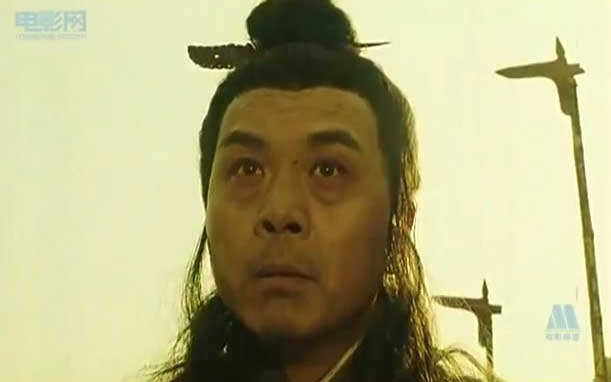
Much of the cynical political commentary and outlook that FORGING THE SWORD is replete with also seems like classic Tsui Hark to me. If I hadn’t seen such non-Tsui Hark movies as “Fong Sai Yuk” and “She Shoots Straight”, I would have thought that he had played a big part in ensuring that women had significant – even if not primary – roles to play in this often shocking as well as chilling work. For all of the connections that have been made between this Mainland Chinese film with other Tsui Hark efforts and those produced and peopled by ethnic Chinese persons though, here's stressing that this offering does contain -- not just combines -- elements that come across as entirely its own as well as others that are taken to an entirely daringly different level. Even while certain sections of this piece is jarringly raw, there are great chunks of it that are most certainly the kind of powerful and memorable stuff that all but the most jaded cineastes would be thrilled to behold.
My rating for this film: 7.5
